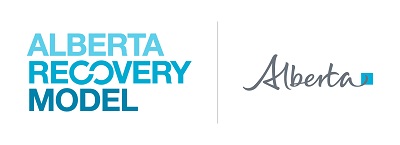Alberta’s government continues to build the Alberta Recovery Model, a continuum of mental health and addiction care that includes prevention, intervention, treatment and recovery. With record-high investment, the model is supporting Albertans of all ages, ensuring children and youth get the mental health care they need to live healthy, fulfilling lives.
Alberta’s government has an established partnership with CASA Mental Health, the province’s second-largest provider of community-based youth mental health services. The organization focuses on youth who are experiencing mental health challenges that are complex but do not require treatment in an acute care setting or psychiatric hospital.
To continue this partnership, Budget 2025 provides $47 million in capital grants to CASA Mental Health to build live-in and day program youth facilities in three new locations: Medicine Hat, Fort McMurray and Calgary. This is part of a capital commitment of $75 million over three years (2023-26), which will also support the relocation of the existing CASA House from Sherwood Park to Edmonton. This capital grant funding will quadruple the number of CASA House beds in Alberta to about 80. Once fully operational, CASA House facilities will treat more than 300 young Albertans every year.
“Investing in youth mental health sets young people up for brighter futures and helps strengthen families and communities across Alberta. The new CASA Houses and our strong partnership with CASA Mental Health will provide the care they need, closer to home.”
“Through the Alberta Recovery Model, we are continuing to invest in the infrastructure, programs and services that will give Albertans access to the supports they need to live meaningful, fulfilling lives. Our partnership with CASA Mental Health is increasing access to services and bringing supports closer to home.”
CASA House facilities will provide treatment for youth aged 12-18 who are experiencing complex mental health challenges with both live-in and day programming. This programming supports youth with the development of skills to build stronger relationships, manage conflict, solve problems, maintain positive health and wellness, and transition to a community school setting. Alberta’s government ensures no family needs to pay for these services by fully funding their operation.
“CASA Mental Health is expanding to provide services to children and youth, and hope to the families supporting them, by bridging the gap between home and hospital. We’re pleased to partner with the Alberta government to bring timely mental health care to more children and youth throughout the province.”
“We felt welcomed. We were treated with respect. We loved that there was a program for our child and for us. We learned a lot for the first time since our struggles, we felt like we were not alone and that there is hope. We are so thankful for the amazing staff who made our child's journey easier.”
CASA Mental Health is in the final stages of securing land for the Fort McMurray CASA House, with that location and the Calgary CASA House expected to open in 2027.
Targeted completion of the Medicine Hat and Edmonton CASA House facilities is 2029. The existing CASA House in Sherwood Park will continue operating until the new location opens. As a non-profit charity, CASA Mental Health will engage with the community and embark on a fundraising campaign to supplement government’s capital funding commitment.
“CASA House will have a profound impact on the Fort McMurray region. This facility will help children receive quality mental health care close to home. This is another example of Alberta’s government investing in local infrastructure to support families in northern Alberta.”
“As an advocate of mental health care, I’m grateful for this new investment for children and youth facing complex mental health challenges. Too often, parents are left questioning how they can get their children the help they need. This new facility will be an important addition to our community.”
“Since being elected two years ago, I have worked with community organizations and service providers to connect with each other and make a mental health and addiction system that works for Medicine Hat. A new CASA House in the city will fill a gap I often hear about, which is the need for more access to mental health services tailored specifically to youth.”
Treatment includes individual, group and family therapy, social and life skills training and on-site schooling. Family and caregivers play a vital role in recovery and are actively engaged throughout the treatment process. This includes participation in bi-weekly parent and multi-family group therapy sessions, education and support opportunities and involvement in personalized care and discharge planning.
Youth who stay at a CASA House receive proactive discharge planning, including eight to 12 weeks of follow-up support. The transition team works with families to develop a coordinated plan that may include referrals to community services, school supports and primary care providers.
Alberta’s government is making record investments in mental health services to support Albertans of all ages in their pursuit of wellness and recovery. This includes investing in digital supports like 211 Alberta and Kids Help Phone, supporting school-based initiatives, increasing access to eating disorder treatment for young Albertans and investing in affordable virtual and in-person counselling.
Quick facts
- May 7 is National Child and Youth Mental Health Day.
- CASA House patients consistently see improvements in symptoms, including:
- Reduction in attention-related symptoms.
- Reduction in substance use.
- Reduction in emotionally related symptoms (anxiety, depression, etc.).
- Improvement in peer relationships.
- Improvement in school attendance and participation.
- In 2024-25, CASA Mental Health provided support for almost 11,000 patients and family members.
- Albertans experiencing mental health or addiction challenges can call or text 211 Alberta for information on services and supports in their community.
Related information
Related news
- New school year, new mental health classrooms (Sept. 2024)
- Record-breaking expansion of mental health services (May 2024)
- Building a future of mental wellness (Jan. 2024)
- Expanding mental health treatment for youth (March 2023)
Multimedia
